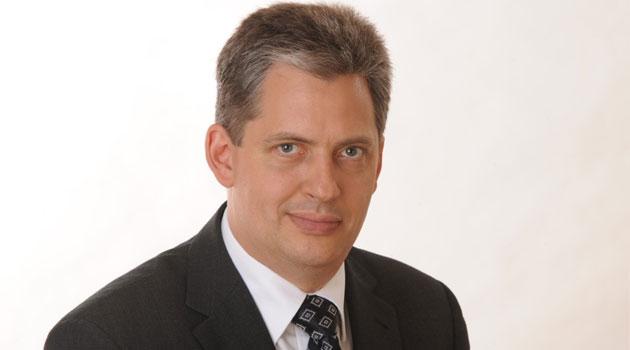Czech Human Rights Minister Jiří Dienstbier has recently visited the towns of Duchcov, Prunéřov u Kadaně, Krupka and the Šluknov district to learn how local governments are approaching the problems of social inclusion that are arising there. "It’s obvious that various approaches are being taken to the same problem," he summarized.
Romea.cz presents the following interview with the minister, conducted by news server iDNES.cz, in full translation:
Q: What are the differences in approach that you saw?
A: It depends on how the local political representation is able to grasp this issue, on the degree of political will to address it in the long term, meaningfully, and to win at least elementary support for it from the people in the town, which may be the most complicated aspect, because tensions in society today are rather high. Political will is quite essential. My impression is that where it does exist, many programs now function that could improve the situation, not from one day to the next, but in the long run.
Q: What is the most important aspect of those programs?
A: From my perspective it is probably most essential to take care of children from socially excluded environments. From that standpoint I appreciate the work of drop-in centers like the one in Prunéřov. We saw something similar in Krupka too. They provide meaningful activities for even the youngest children, they facilitate contact between children and social workers, know how children think, what direction to lead them in, and primarily they know how to draw them away from just aimlessly wandering around in some weird space, how to lead them in the direction of a normal education, because the drop-in centers with the youngest school-aged children must connect them to a proper education. If we don’t give this to children from socially excluded environments, their social exclusion will be transferred to the next generation.
Q: Isn’t there the threat the public will resist this, that they will understand it as advantages being provided only to some?
A: As the mayor of Kadaň said, the majority society should support such matters because it will benefit them in the end. If the problem is never solved, it will only deteriorate further, and ultimately everyone will pay the price, both those in the socially excluded localities and the majority society, which bears the costs of social exclusion in various ways.
Q: The town of Kadaň won the Gypsy Spirit award for its work. Do you believe it is a good example?
A: I think so. We had the opportunity to speak with the mayor and with nonprofit sector staffers, and I had a good feeling about it. I’m not saying everything is ideal today, this is work that will take many years, but things like gradually improving housing standards and providing socially permeable housing are helping. When people do their best, they can access better housing, even a normal apartment. Socially permeable employment helps those who want to work find jobs. We also discussed public services.
Q: That is a tangible problem for the town. Did you promise some aid?
A: Local government representatives complained that they were lacking it in addition to the tool of public works. We discussed social entrepreneurship and employing people that way. We also heard there are examples of people who have been socially employed, who were good, who want to work, and who have become normally employed. Those are the first signs of how the entire social system should ultimately function.
Q: What about aid to the towns?
A: On the one hand we can promise systemic support – that means concepts and strategies for integrating the Romani minority or for combating social exclusion. In the past these concepts were not poorly designed, but not many decisions were guided by them. We can promise a change there. Naturally there are also changes needed to the laws per se. There is a lack of public service, or of the conditions under which it can be implemented, in order to motivate people to work and receive adequate remuneration. There is the question of addressing this trafficking in the housing subsidies, where those providing apartments and residential hotels for rent are abusing the welfare system. We want to address that by rapidly adopting an amendment to the law on aid to those in material distress. In the long run, we want to anchor social housing rules into law, but that will not happen as quickly as addressing the housing subsidies will, we have not managed to address social housing for decades. Our ambition is to bring such legislation to life during the current government’s term.
Q: Returning to public service – are you succeeding it reviving that somehow?
A: It is realistic that it will return. We are planning to support those principles. There are various instruments for that – community service, public service, they can be combined.
Q: That was the first step that aided people with problems in moving beyond them.
A: Yes, and it was destroyed before because the financial motivation aspect of it fell away. After that it wasn’t a tool for improving people’s situations anymore, but just a condition for drawing welfare.
